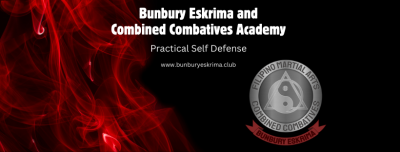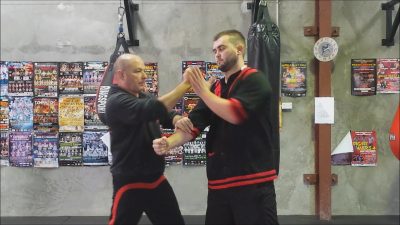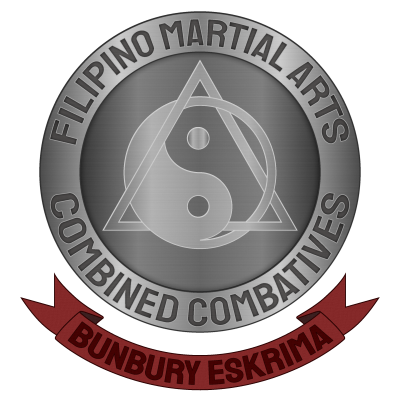
“Fighting Takes A Long Time; Self Defense Takes Mere Seconds”
Nicole Jones.
The Bunbury Eskrima Club was established by Sensei Dean Carter in 2007. His vision is to train traditional styles in a safe and constructive and evolving environment. All instructors are highly experienced and qualified in the Filipino Martial arts and have coaching accreditation, teaching experience and qualifications in their respective disciplines.
Bunbury Eskrima teaches a proven and successful program with a diverse collection of styles of Filipino, Asian and Military Combative techniques. The program integrates traditional Martial Arts with current day street fighting strategies for practical self-defense.
With the ever-growing violence on the streets today and the rise of the crime and theft involving weapons, this style of martial art becomes increasingly more important today. If you’re learning to fight and take care of yourself outside of sport and for the street Eskrima and Combined Combative training teaches you how to recognize, avoid and defend yourself when confronted with a threatening situation. It will also teach you the dangers and legalities involving a wide range of situations. The basis of our system is rooted in Filipino Martial Arts (FMA), often referred to as Eskrima/Arnis/Kali in different regions of the Philippines. The system incorporates elements from both Western and Eastern Martial Arts. Suited for men and women alike will build confidence, fitness, make friends, and achievement.
THE WEAPON BECOMES THE HAND AND THE HAND BECOMES THE WEAPON.

Eskrima is the national sport and martial art of the Philippines and is also known as Arnis and Kali. The three are roughly interchangeable umbrella terms for the traditional martial arts of the Philippines (“Filipino Martial Arts”, or FMA), which emphasize weapon-based fighting with sticks, knives, bladed weapons, and various improvised weapons, as well as “open hand” or techniques without weapons. Such as boxing, elbows, knees, throws and joint locks.
Eskrima students start their instruction by learning to fight with weapons, and only advance to empty-hand training once the stick and knife techniques have been sufficiently mastered. This is in contrast to most other well-known Asian martial arts, but it is justified by the principle that bare-handed moves are acquired naturally through the same exercises as the weapon techniques, making muscle memory an important aspect of the teaching. It is also based on the obvious fact that an armed person who is trained has the advantage over a trained unarmed person and serves to condition students to fight against armed assailants. Most systems of Eskrima apply a single set of techniques for the stick, knife, and empty hands, a concept sometimes referred to as motion grouping. Since the weapon is seen as simply an extension of the body, the same angles and footwork are used either with or without a weapon.
We invite you to join us for training that is suitable for men and women from the age of 18 and up. The techniques and training will inspire and excite all.

The weapon becomes the hand and the hand becomes the weapon.
Classes
Tuesdays and Thursdays
5:30pm-7pm
Try your first class for free
For enquiries, please email [email protected] or SMS 0425 774 355.